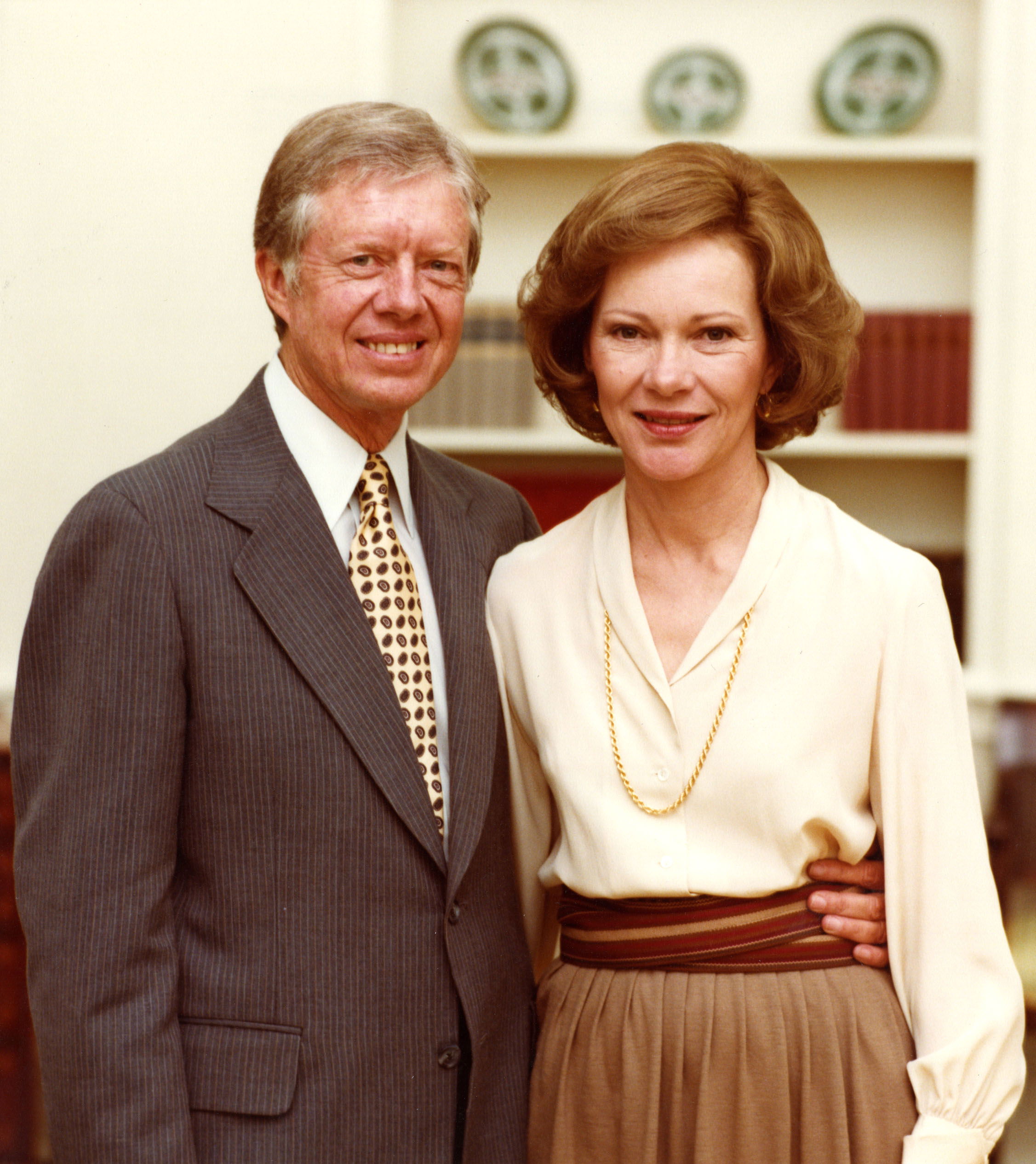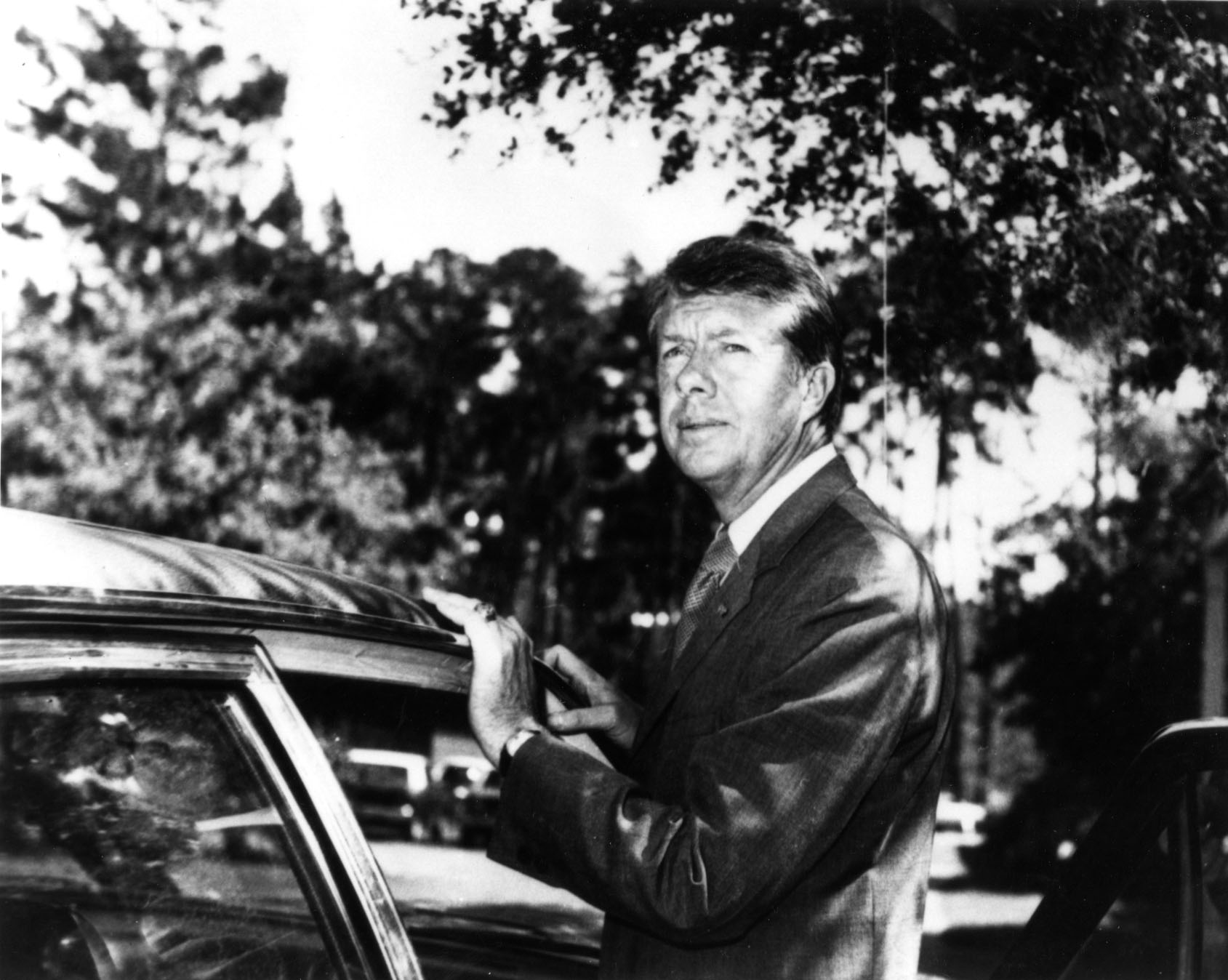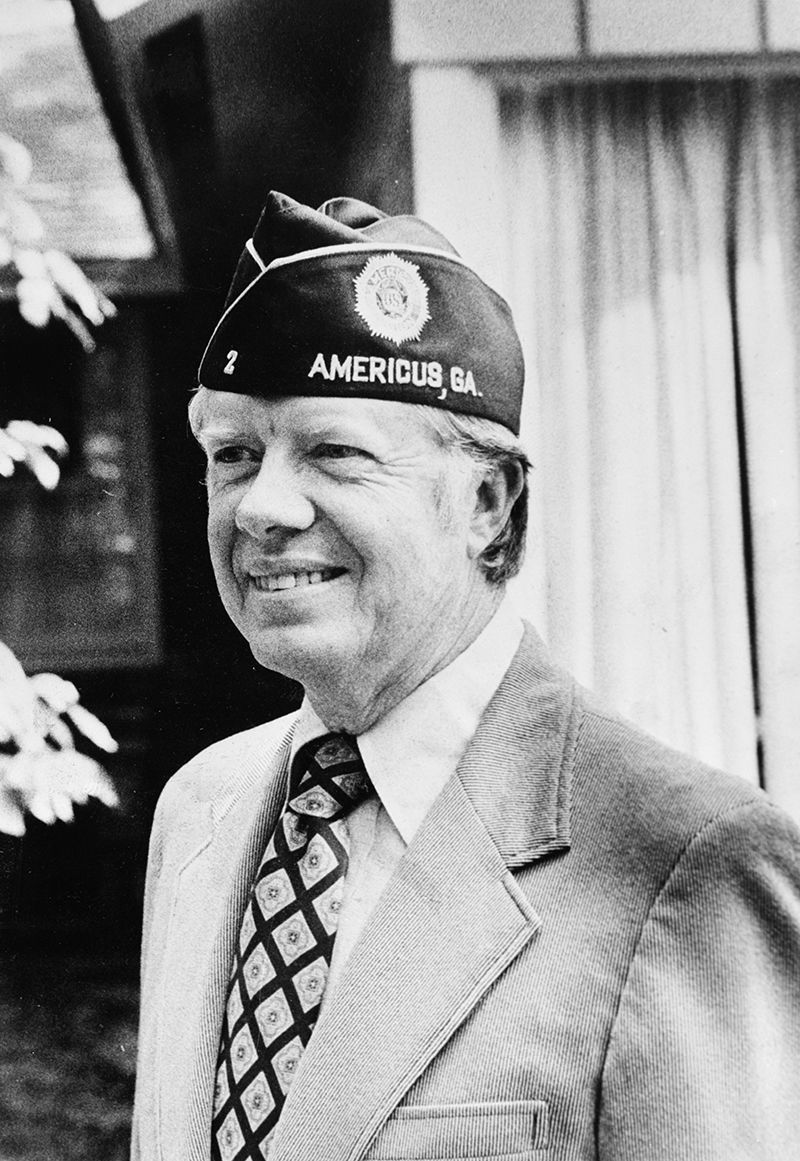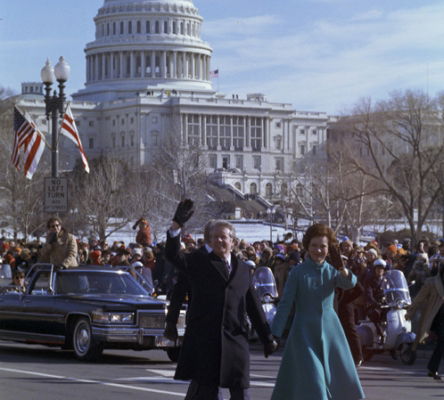Jimmy Carter, the only Georgian elected president of the United States, held the office for one term, 1977-81. His previous public service included a stint in the U.S. Navy, two senate terms in the Georgia General Assembly, and one term as governor of Georgia (1971-75). After being defeated in the presidential election of 1980, he founded the Carter Center, a nonpartisan public policy center in Atlanta.
During his years of public service at the local, state, and federal levels, Carter’s policies contained a unique blend of liberal social values and fiscal conservatism. He emphasized comprehensive reform and stressed efficiency and economy, advance planning, and rational organization. He also championed equal rights for all Americans, especially women and minorities, and basic human rights for all people. In 2002 Carter won the prestigious Nobel Peace Prize for his humanitarian efforts.
Early Years and Education
Jimmy Carter’s journey to the Oval Office began in the small Sumter County town of Plains. Born on October 1, 1924, James Earl Carter Jr. later adopted the more informal “Jimmy” as his official designation. His father, a farmer and small-town merchant, was one of the area’s leading citizens. Although a supporter of the Democratic Party by southern tradition, James Earl Carter Sr. rejected most of the liberal New Deal tenets endorsed by the national party. He also accepted the local social customs of his time, never questioning the prevailing southern racial doctrine that stamped his African American neighbors as inferior. Conversely, the future president’s mother, Lillian Gordy Carter, instilled in her son a decidedly more enlightened view of race. A registered nurse and voracious reader, she surprised her family when at age sixty-eight she volunteered for the Peace Corps and served in India.
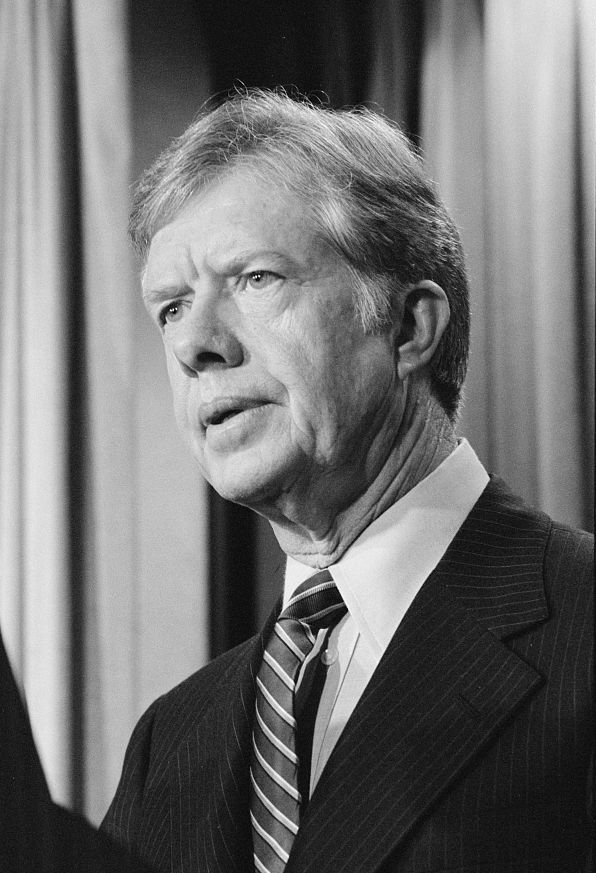
Courtesy of Library of Congress, Prints and Photographs Division
After attending public school in Plains, Carter matriculated at Georgia Southwestern College (later Georgia Southwestern State University) in Americus and the Georgia Institute of Technology in Atlanta before receiving a coveted appointment to the U.S. Naval Academy in Annapolis, Maryland. He graduated with a baccalaureate degree and a naval commission in 1946 and eventually became senior officer of the pre-commissioning crew of the Seawolf, the second nuclear submarine. His superior officer in the program was Admiral Hyman Rickover, the architect of the U.S. nuclear submarine program. The renowned naval officer’s relentless quest for excellence made a lasting impression on Carter, who later claimed Rickover as a mentor and role model.
Family, Business, and Community
Carter married Rosalynn Smith, also from Plains, shortly after leaving the Naval Academy. They had three sons, John William, James Earl III, and Donnel Jeffrey, and a daughter, Amy Lynn. After the death of Carter Sr. in 1953, the younger Carter resigned his naval commission, forgoing a promising military career, and returned to Plains. He spent the next several years reviving the family-owned peanut warehouse business, farming, and generally assuming the responsibilities previously exercised by his father.

Courtesy of the Carter Center
The family businesses thrived under Jimmy and Rosalynn Carter’s skilled management. Consequently, with more time to devote to community affairs, Carter took an active interest in a variety of local concerns. He served on Sumter County’s library and school boards and on its hospital authority. He held leadership roles in regional and state planning associations and eventually became president of the Georgia Planning Association. He also served as state president of the Certified Seed Organization and as district governor of Lions International. In a few short years Carter had comfortably assumed his father’s community leadership position.
State Politics
Politics increasingly attracted Carter’s attention. His father had represented Sumter County in the state legislature at the time of his death, and now, with family business affairs in order, Carter prepared to make his own entry into state politics. He overcame the unlawful machinations of a political boss in Quitman County to win election to the state senate from the Fourteenth District in 1962. Carter devoted much time and attention to educational affairs during his two senate terms. While serving on the Sumter County School Board, he vigorously promoted efficiency and educational opportunity through reorganizing and merging local schools. But fearing that such measures might be the first steps toward desegregation, the county’s predominantly white electorate voted his proposals down in a referendum election. Later, as chair of the Senate Education Committee, Carter continued to advocate such policies on a statewide level.
After briefly flirting with a run for the U.S. Congress in 1966, Carter instead joined the race for the Democratic gubernatorial nomination. For a little-known state senator, he ran a surprisingly strong race but missed the runoff, finishing third to former governor Ellis Arnall and flamboyant restaurateur Lester Maddox. Although deeply disappointed by the election results, Carter soon began laying plans for a second gubernatorial campaign in 1970. In the first race Carter had positioned himself as a moderate progressive alternative to the more liberal Arnall and the staunchly conservative-segregationist Maddox. During his second campaign Carter subtly appealed to class antagonisms, running as the representative of the ordinary people. It was a successful campaign strategy in which Carter projected himself as a traditional southern conservative. He associated his chief opponent, former governor Carl Sanders, with Atlanta’s social and economic elite and chastised him for failing, during his governorship, to invite Alabama’s outspoken segregationist governor, George C. Wallace, to address the Georgia General Assembly.
Governor of Georgia
After easily defeating his Republican opponent, Carter surprised most of his Georgia supporters and attracted national attention during a short, twelve-minute inaugural address when he proclaimed that the time for segregation had ended. “No poor, rural, weak, or Black person,” he declared, “should ever have to bear the additional burden of being deprived of the opportunity of an education, a job, or simple justice.” He soon revealed himself to be a moderate business progressive with an extensive reform agenda designed to make the state government operate more efficiently and be more responsive to the needs of its citizens.
The reorganization of the state’s government served as the cornerstone of Carter’s gubernatorial program. The massive reform effort, which continued through much of his four-year term, produced large-scale structural reform. Sixty-five budgeted and 200 unbudgeted agencies, boards, bureaus, and commissions were consolidated into 20 line agencies. The objective was to group similar functions into a single jurisdictional body, thus saving money by avoiding duplication and improving the delivery of services. The most controversial aspect of the reorganization plan involved the creation of three super agencies—the departments of administrative services, natural resources, and human resources—that absorbed the functions and responsibilities of 62 existing state agencies.
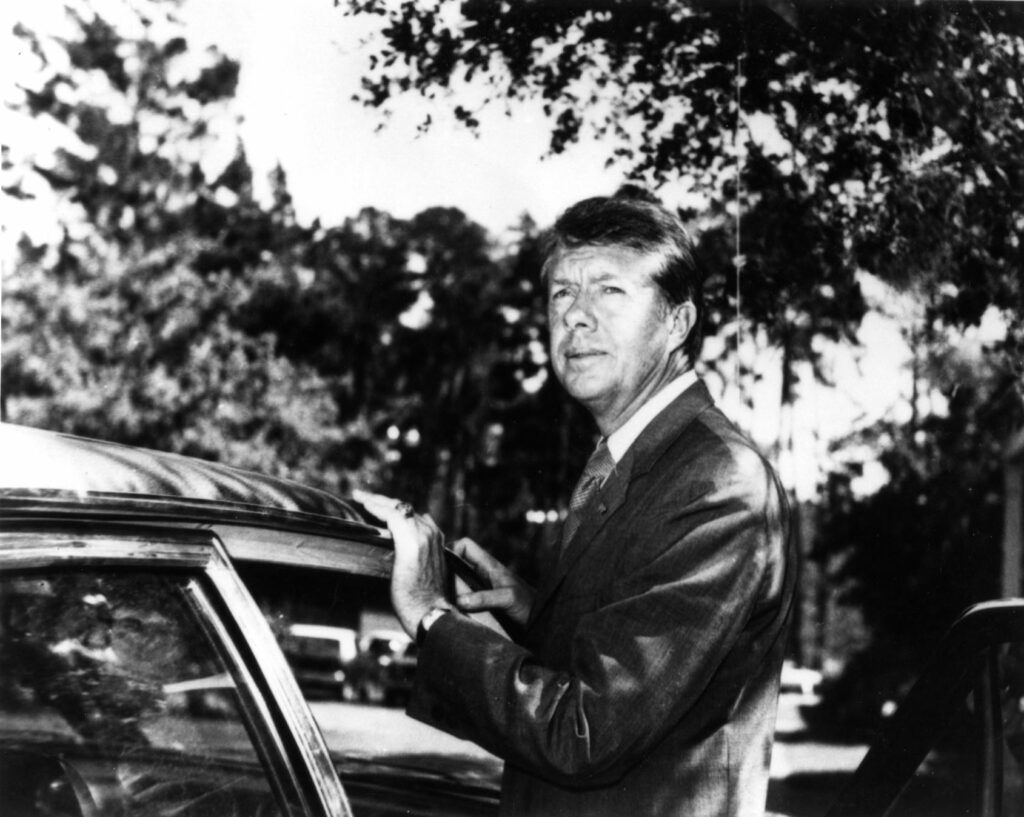
Courtesy of Richard B. Russell Library for Political Research and Studies, University of Georgia Libraries.
An effort to improve efficiency and reduce the costs of services accompanied the larger endeavor to restructure the administrative organization of state government. One of Carter’s more controversial proposals concerned budget reform. Under his “zero-based budgeting” plan, state departments and agencies, rather than submitting an aggregate budget figure, supposedly started from scratch each year, evaluating and justifying every dollar they requested.
In addition to reorganizing the state government, Carter continued his earlier efforts to upgrade the notoriously weak educational system. The “Adequate Program for Education in Georgia,” the governor’s educational reform package, provided funds to support vocational education, reduce class size, and equalize funding among districts. At the same time, Carter increased the state’s commitment to preschool education and launched a campaign that eventually led to the adoption of a statewide kindergarten program.
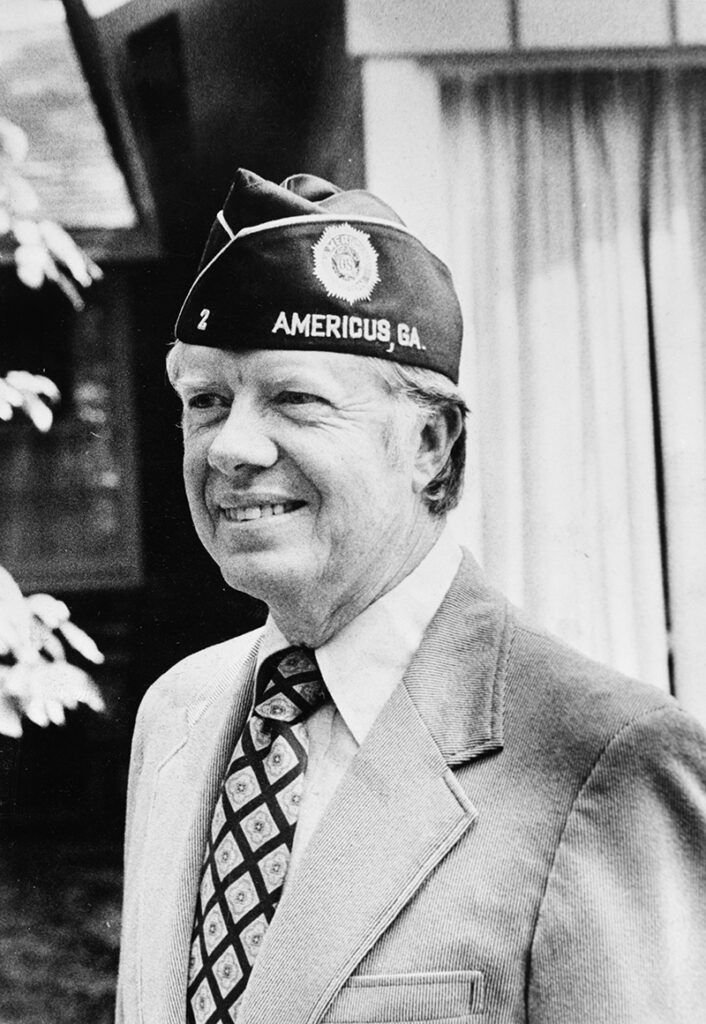
Courtesy of Georgia Archives.
Substantial reform in the operation of the state’s criminal justice system also took place during Carter’s governorship. These revisions included significant progress toward the creation of a unified court system, the systematic use of a merit system in the selection of judges, a constitutional method of regulating judicial conduct, and much needed penal reform.
Carter also initiated significant new mental health programs and took a variety of actions, both substantive and symbolic, to promote civil rights and equal opportunity for women and minorities. His commitment to fairness and justice was also noticeable in his appointment policy. He appointed more women and minorities to his own staff, to major state policy boards and agencies, and to the judiciary than all of his predecessors combined.
President of the United States
Still a relatively young man of fifty at the end of his term and ineligible to run for reelection under the state constitution (later changed), Carter had begun to explore possibilities for higher office well before leaving the gubernatorial office. During the summer of 1974 he agreed to direct the Democratic National Committee’s nationwide midterm campaign to elect Democratic governors, senators, and congressmen. The position allowed him to meet state party officials, political consultants, constituency leaders, and other party functionaries. This exposure proved invaluable when Carter officially declared his candidacy for the 1976 Democratic presidential nomination. Meanwhile, the slow, agonizing unraveling of the Watergate scandal that eventually drove U.S. president Richard Nixon from office greatly enhanced the Democratic Party’s electoral prospects in the upcoming general elections.
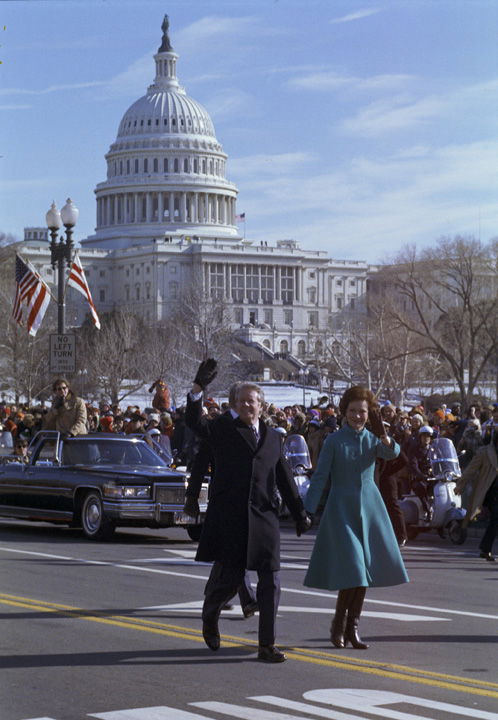
Courtesy of Jimmy Carter Presidential Library and Museum.
Carter prevailed during the presidential primaries and then narrowly defeated Nixon’s successor, incumbent Republican president Gerald R. Ford, in the general election. In office Carter emphasized high moral standards, ethical behavior, and democratic principles. He often projected himself in populist terms, dressed casually, and sharply reduced the level of pomp and ceremony that had come to be associated with the modern American presidency.
Stagflation
An unpretentious, egalitarian demeanor did little to offset the severity of the national and international problems that Carter inherited. In 1973 the Arab oil-producing nations of the Organization of Petroleum Exporting Countries (known as OPEC) had sharply reduced oil production, driving up prices and creating selective gasoline shortages. In addition to higher fuel costs, escalating food and health care prices spurred inflation. By the time Carter took office in 1977, the combination of rising prices, persistent unemployment, and a stagnant economy had been dubbed “stagflation.” The Carter administration sought to slow inflation by raising interest rates and restraining federal spending.
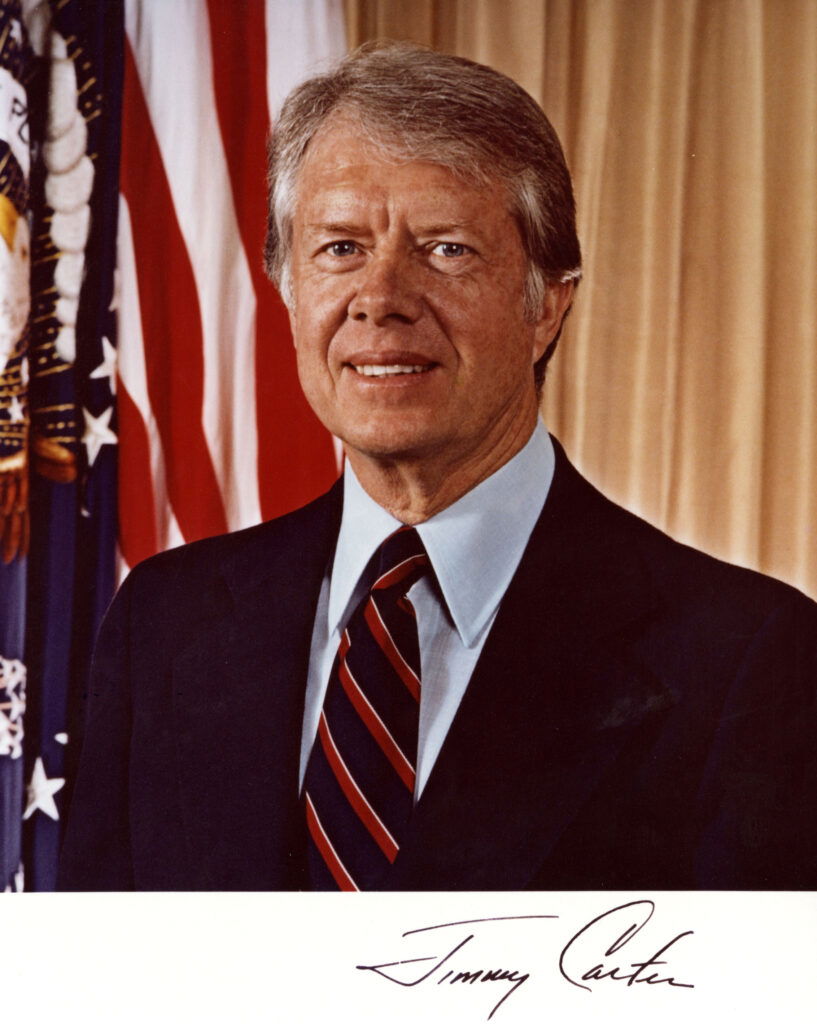
Coupled with other measures, Carter’s straightforward fiscal program eventually brought inflation under control, but at considerable political cost. Low-income workers, a core Democratic Party constituency, fared poorly under Carter’s economic program. In the battle to control inflation, his administration’s policies encouraged reduced employment and advocated pay restraints that decreased real wages for those who retained employment. Disillusioned, many traditional Democratic supporters either deserted the party or abandoned politics altogether.
Domestic Record
Despite rocky relations with Congress, Carter created two new cabinet-level departments (Energy and Education), developed a national energy policy, and deregulated the trucking and airline industries. Particularly sensitive to conservationist and environmental concerns, he successfully pushed the Alaska National Interest Lands Conservation Act through Congress, more than doubling the acreage in the national park and wildlife refuge system. Continuing his practice from his time as governor, Carter also appointed a record number of women and minorities to federal government offices.
International Affairs
In addition to continuing domestic problems, international crises beyond Carter’s control further undermined his leadership. Two events that occurred late in Carter’s term proved particularly damaging: the seizure in November 1979 of the American embassy in Tehran, Iran, following the expulsion of the Shah by the followers of the Ayatollah Khomeini, a fundamentalist Muslim cleric, and in December 1979 the Soviet Union’s invasion of Afghanistan. Ultimately, Carter managed these two crises judiciously, but the incidents embarrassed the nation, and Carter’s measured response to them won him little public applause. Nonetheless, Carter survived Senator Edward “Ted” Kennedy’s forceful challenge in the 1980 Democratic presidential primaries, but he decisively lost his bid for reelection to Republican nominee Ronald Reagan.
Though at the time he departed office his presidency was widely perceived as a failure, Carter left behind a solid record of accomplishment in both domestic and international affairs. He firmly established human rights as an essential component of policy both at home and abroad, opened diplomatic relations with China, and helped to negotiate the Panama Canal Treaties, the Camp David Accords between Israel and Egypt, and SALT II (Strategic Arms Limitation Treaty) with the Soviet Union.
The Carter Center
Shortly after returning to Georgia following his failed reelection bid, the former president founded the Carter Center in Atlanta and became the University Distinguished Professor at Emory University. Since its founding, the has not only examined and analyzed national and international policy issues but also actively engaged in efforts to advance human rights, promote democratic practices, and resolve conflicts. The Carter Center has monitored more than 100 elections in dozens of countries, including Venezuela, Mozambique, Nicaragua, and the Dominican Republic. It worked to resolve conflicts in Haiti, Bosnia, Ethiopia, North Korea, Sudan, and other countries.
The first president to visit Cuba since Calvin Coolidge in 1928, Carter spent time during his 2002 visit with Fidel Castro and political dissidents alike. Carter visited the AIDS sanitarium and a school for disabled children, and threw a pitch for an all-star baseball game in Havana. With Castro and National Assembly president Ricardo Alarcon in attendance, he delivered a live and uncensored speech on Cuban TV and radio, in Spanish, in which he opened up communication on free trade and democracy.
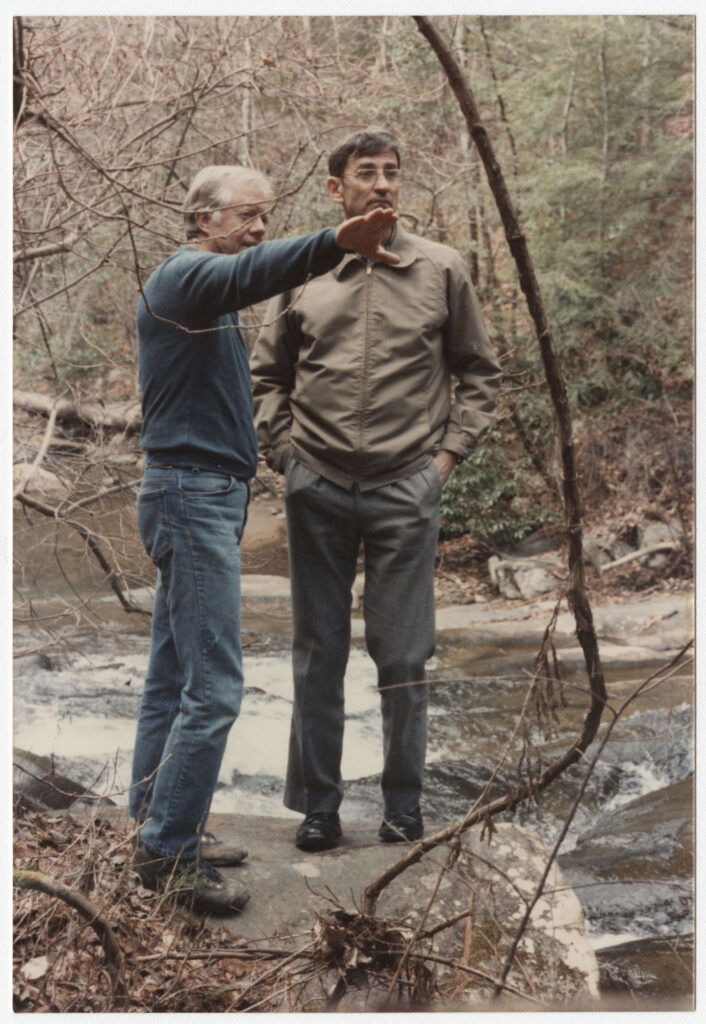
Courtesy of Hargrett Rare Book and Manuscript Library, University of Georgia Libraries.
Through its Global 2000 programs, the center sought to eradicate or control such debilitating diseases as river blindness, guinea worm, and trachoma, which have devastated the populations of many poorer countries. It also worked to relieve hunger through agricultural reform, especially in drought-plagued sub-Saharan Africa. In addition to his support for Carter Center projects, Carter championed Habitat for Humanity, a Georgia-based philanthropy that helps needy people build new homes or renovate older ones.
In 2002 Carter was awarded the Nobel Peace Prize for his ongoing effort to find peaceful solutions to international conflicts and to advance democracy and human rights. Carter was the third U.S. president to win the Nobel Peace Prize. Presidents Theodore Roosevelt and Woodrow Wilson both received the prize while still in office, as did Barack Obama decades later. Carter and Martin Luther King Jr. share the distinction of being the only native Georgians to receive the honor. In 1999 Jimmy and Rosalynn Carter, along with the Carter Center, received the inaugural Delta Prize for Global Understanding, an award administered by the University of Georgia.
Author
Over the course of his life Carter wrote thirty books, covering a range of topics including, faith, politics, and human rights. At the time of his presidential candidacy, Carter published Why Not the Best? (1975), a biographical introduction of his political stance and viability as a candidate. In A Government as Good as Its People (1977), Carter discusses government policy on crime, poverty, nuclear energy, foreign policy, and human rights. With The Blood of Abraham: Insights into the Middle East (1993) he breaks down the history of that region.
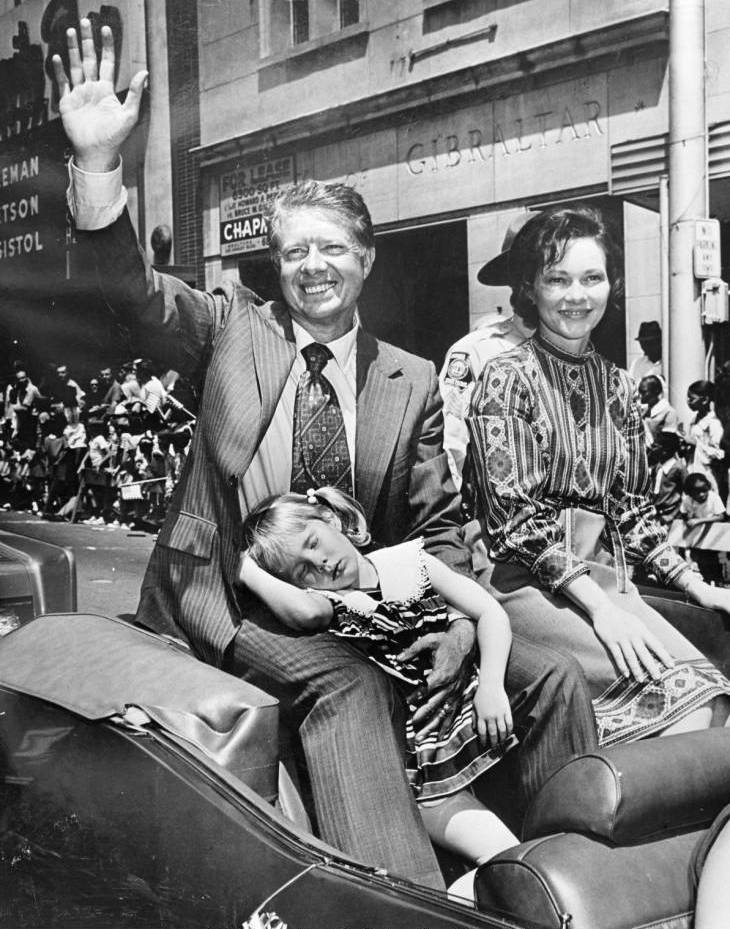
Courtesy of Special Collections & Archives, Georgia State University Library.
Carter’s collection of essays entitled Our Endangered Values: America’s Moral Crisis (2005) spent several weeks at the top of the New York Times best-seller list and won an award from the Georgia Writers Association. A sharp critique of the religious right and the administration of U.S. president George W. Bush, the book addresses a wide range of topics, including global warming, gun control, human rights abuses, and the Iraq War (2003-11). The following year he published Palestine: Peace Not Apartheid, an analysis of the Israeli-Palestinian conflict. The best-selling book’s criticisms of Israel generated controversy after its release. In 2007 filmmaker Jonathan Demme released a documentary, Jimmy Carter Man from Plains, chronicling Carter’s publicity tour for the book.
In a book coauthored with his wife, Everything to Gain: Making the Most of the Rest of Your Life (1987), the Carters discuss their experiences with Habitat for Humanity and the Carter Center. In Turning Point: A Candidate, a State, and a Nation Come of Age (1992), Carter relates the story of his first campaign for public office, when in 1962 he won a seat in the Georgia state senate. He recounts the difficulties of resisting segregationist groups in the wake of the U.S. Supreme Court ruling that imposed the “one man, one vote” principle.
In addition to two memoirs published in 2001, Christmas in Plains: Memories and An Hour before Daylight: Memories of a Rural Boyhood, Carter wrote an autobiography, Living Faith (1996), which focuses on his spiritual faith in service to the country. His semiautobiographical poetry appeared in Always a Reckoning, and Other Poems (1995). The 2003 publication of The Hornet’s Nest, a work of historical fiction about the Revolutionary War (1775-83) in the South, made Carter the first U.S. president to publish a novel.
In 2006 Carter was inducted into the Georgia Writers Hall of Fame, and the following year he won a Grammy Award for the audio version of his book Our Endangered Values. Honored in the category of spoken word album, Carter’s recording tied for the award with Ossie Davis and Ruby Dee’s With Ossie and Ruby: In This Life Together. In 2007 Carter published Beyond the White House: Waging Peace, Fighting Disease, Building Hope, in which he discusses his postpresidential career and the accomplishments of the Carter Center during its first twenty-five years.
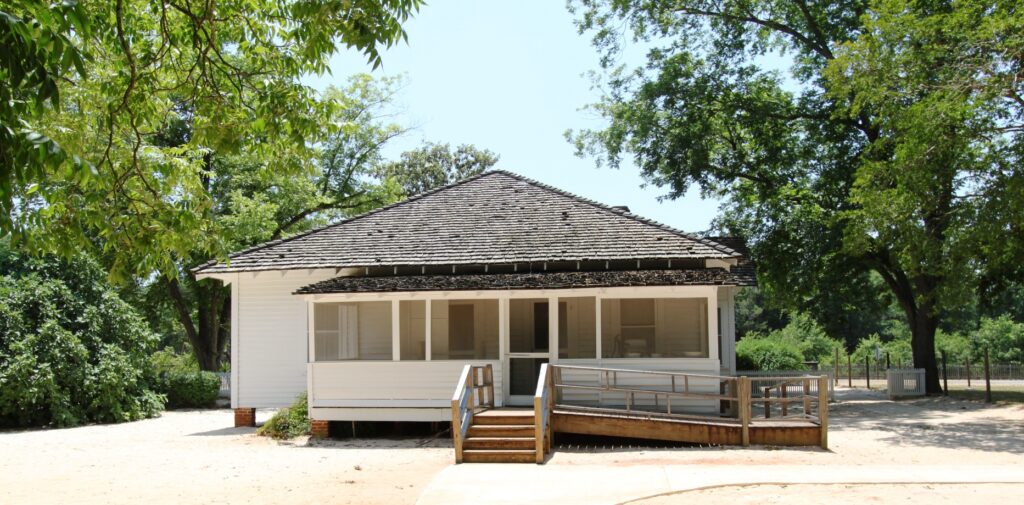
Photograph by OZinOH
Carter published his memoir of Lillian Carter, entitled A Remarkable Mother, in 2008. The book features interviews with family and friends as well as Carter’s own memories of his mother. Three of his last five publications were religious meditations, including Through the Year with Jimmy Carter: 366 Daily Meditations from the 39th President (2011), a 2012 edition of the New International Version (NIV) Bible with personal commentary, and Faith: A Journey for All (2018), which became a New York Times bestseller.
End of Life and Memorial Services
Carter entered hospice care in February of 2023. Rosalynn, who at the end of her life suffered from dementia, entered hospice care the following November and passed away days later at ninety-six years old.
Carter died at his home in Plains on December 29, 2024. He was one hundred years old. Funeral services honoring the former president were held at several locations over a period of six days. A motorcade escorting his remains left the Phoebe Sumter Medical Center in Americus on January 4 and travelled through Carter’s hometown before heading to the Carter Center in Atlanta, where he lied in repose until January 7. In Washington D.C., the former Navy lieutenant was honored in a service on January 7 in the Capitol Rotunda, where he lied in state until January 9. Services in D.C. concluded with a National Funeral Service at the Washington National Cathedral.
A final private service honoring the life of the former president was held at the Maranatha Baptist Church in Plains, where he famously taught Sunday School for more than forty years.
Carter is interred at his family home, buried beneath a willow tree next to his wife of seventy-seven years.



























